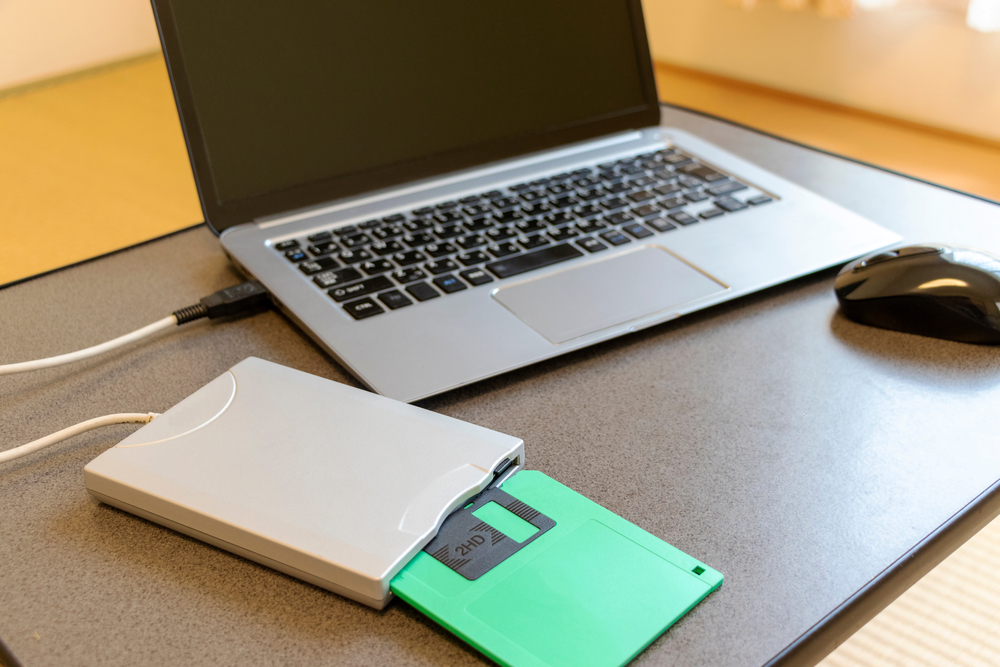Is Japan Proper to Declare Struggle on Floppy Disks?
“The place does one even purchase a floppy disk?” a rhetorical Taro Kono requested a room stuffed with reporters.
Satirically, the reply is Japanese. In truth, anybody who’s shuffled alongside the basement aisles of an Akihabara retro retailer, perused the cabinets in a Tokyo Onerous Off, or fumbled round in a Japanese workplace desk will let you know as a lot.
However I respect Kono’s level. I additionally fall proper consistent with the sentiment — it is about time the federal government rid itself of antiquated know-how.
The digital affairs minister posed the query as a part of his opening gambit to “declare warfare” on the floppy disk. Kono, who narrowly misplaced out within the race for the Japanese premiership to Fumio Kishida final autumn, is arguably the nation’s highest profile political maverick; working counter to the prevailing winds with a reformist, straight-talking fashion that has curried little taste with the omnipotent paperwork.

This got here to the fore throughout his tenure as administrative reform minister in Yoshihide Suga’s cupboard, when Kono waged comparable conquests on fax machines and hanko — which reviews counsel are nonetheless utilized by as much as 95 p.c of native companies. Japan’s paper and ink tradition had been within the headlines for a lot of that pandemic-riddled yr, with public officers and personal staff trudging en masse to the workplace to print, stamp and fax paperwork they did not have the means to do from house.
“Why do we have to print out paper? In lots of instances, that is just because the hanko stamp is required,” Kono stated in late 2020. “So, if we are able to put a cease to that tradition, it should naturally obviate the necessity for printouts and faxing.”
Japan residents shall be effectively acquainted with the cognitive dissonance between its cutting-edge client know-how exported to world acclaim versus the workplace areas and authorities procedures which have scarcely modified for the reason that bubble financial system. Sadly, this resistance to vary is to be anticipated in a deeply bureaucratic authorities largely presided over by previous males who grew up in one other period and nonetheless maintain worth within the perceived security of bodily media and the sanctity of the hanko-carving custom.
Updating Japan’s digital infrastructure to be attuned to its tech-savvy picture may benefit procedural effectivity, financial development, communication channels and stakeholder expertise — as has been famous in a number of research (see right here, right here and right here). Furthermore, it should absolutely ship a message to any company hellbent on resisting change that it is time to wave farewell to the analog period.

Yesterday’s World
It is little shock the floppy disk was the following piece of arcana to fall foul of Kono’s ire. Floppy disks — used for no fewer than 1,900 authorities procedures, together with submitting functions — maintain round 1.4MB of knowledge. That is sufficient for nearly one excessive decision picture or a handful of thumbnails (relying on their dimension). Even USBs, which already really feel vintage as a result of proliferation of SD playing cards, moveable arduous drives and cloud-based storage software program, are equal to 1000’s of floppy disks.
It is true, nevertheless, that the floppy disk represents a slice of Japanese historical past. Supposedly invented by the eccentric and prolific Yoshiro Nakamatsu — a declare disputed by the world’s first distributors, IBM — it quickly turns into the de facto knowledge storage system in a quickly digitizing world. The floppy’s heyday lasted at the very least 30 years — I may even recall utilizing them within the mid-Nineties — earlier than the brand new century ushered in an inevitable decline. Then in 2010, Sony, the final firm nonetheless producing the disks, introduced that manufacturing would formally stop.
The institution and sure strands of the media have levied criticism in opposition to Kono, stating that axing floppy disks altogether overlooks their significance in Japan’s digital previous.
Now, I’m a sentimental type — the kind of one that buys wood electronics, pines for the times when Snake was the one worthwhile diversion on my telephone and may’t resist an excellent typewriter show in a store window — so I get the nostalgic enchantment. However then once more, I’m not working a 120-million-strong democracy and my old-school foibles subsequently have an effect on no person past my social circle. The “these have been the times” argument, does not actually maintain up within the face of technological innovation.
It is also price noting that floppy disks, like most items of technological gear, deteriorated over time — and, frankly, weren’t that sturdy to start with. So, an inflection level sits on the horizon, whether or not we prefer it or not. Necessity must be the mom of invention, or on the very least, change.

Altering the Legislation
Legislature will pose a stumbling block in Kono’s warfare. The federal government is required by legislation to make use of floppy disks (or comparable applied sciences, akin to CDs) for sure procedures. This necessitates a authorized overhaul which will not be easy within the face of bureaucratic pushback.
Revised rules are anticipated to be drafted throughout the yr, upon which they will be offered to authorities businesses for compliance. Till then, we cannot formally know the floppy’s destiny.
If Kono can overcome this problem and efficiently catalyze a digital shift, which his PM has already supported, then count on equally out of date applied sciences to be focused sooner or later. As a result of if Kono’s fame is something to go by, plans are already being devised within the warfare room.
Retrophiles will, nevertheless, have a silver lining to cling to, as each time you hit “save” on a phrase doc or excel sheet, the floppy disk icon shall be there to remind you that that is the place all of it started.
